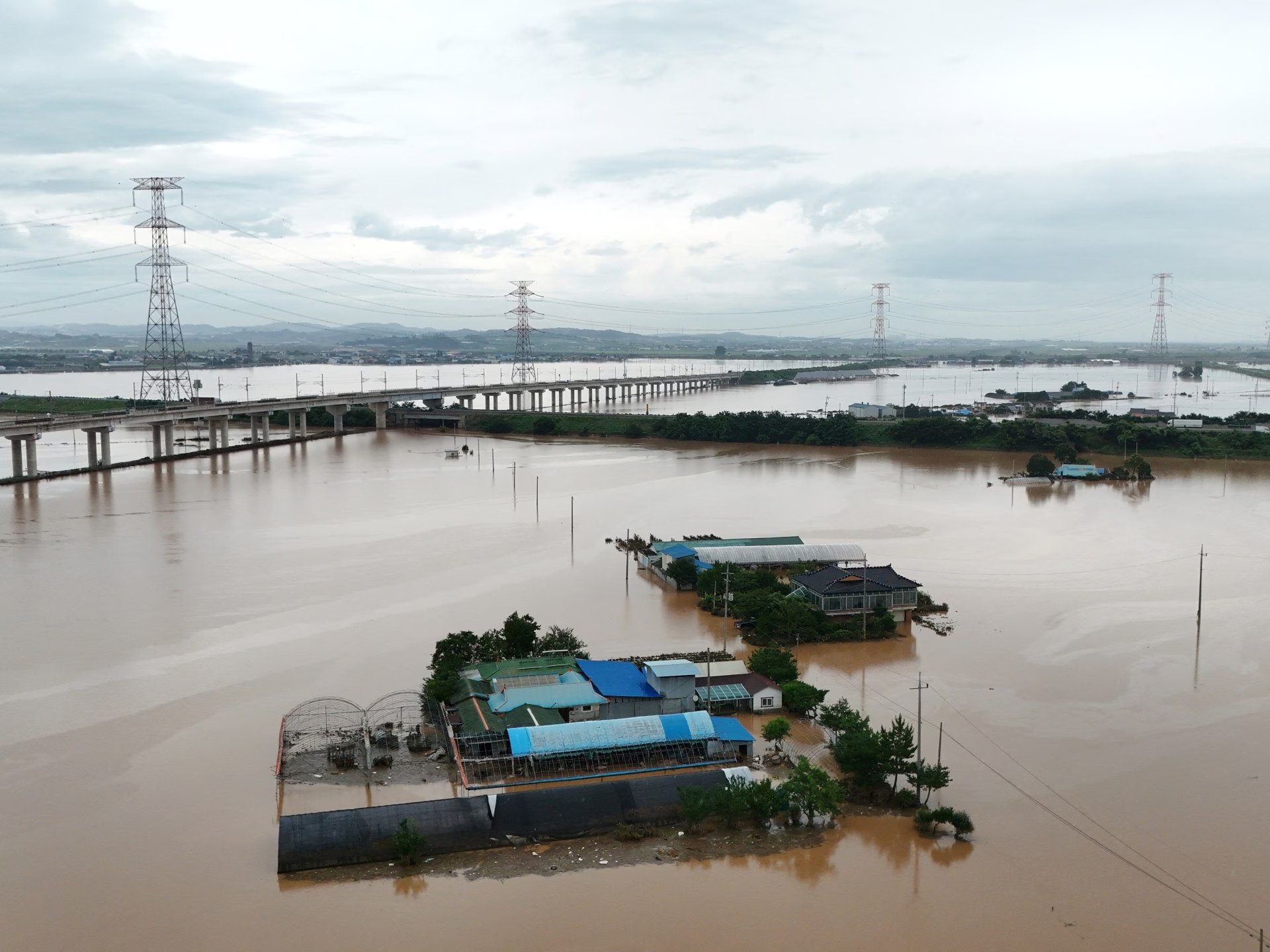South Korea is expected to continue experiencing record rainfall until Monday, prompting further public warnings.
As heavy rains persist in South Korea for the fourth consecutive day, four individuals have been confirmed dead and at least two are missing. The torrential rains have displaced thousands from their homes and trapped livestock in rising floodwaters, according to authorities.
Authorities have issued a warning on Saturday about the possibility of up to 250mm (9.8 inches) of additional rainfall throughout the day, which could result in more damage and casualties. The Korean official news agency Yonhap has reported these updates.
Weather forecasts indicate that rain is expected to persist until Monday in some areas, with officials cautioning against the risk of landslides and flooding for most of South Korea.
Over 2,800 people are still unable to return home out of the more than 7,000 evacuated recently, as reported by the Ministry of Interior. Record rainfall in South Chungcheong province’s Seosan, located south of the capital Seoul, has exceeded 500mm (almost 20 inches) since Wednesday.
In just four days, certain areas of the country have received 40 percent of their average annual rainfall, according to Yonhap.

Among the casualties was a person who experienced a cardiac arrest in a flooded vehicle in Seosan and later succumbed to death at a nearby hospital. An elderly man was found dead in the basement of his flooded home, while another died when a retaining wall collapsed onto a vehicle. Additionally, a body was discovered in a stream, and two individuals remain missing in the southwest city of Gwangju.
In the Chungcheong province, cows were seen struggling to stay above water as their sheds and stables were inundated by rainwater.
Yonhap reported 729 incidents of public infrastructure damage, including flooded roads and the failure of river facilities, along with over 1,000 cases of private property damage, including 64 flooded buildings and 59 submerged farmlands.
Neighboring North Korea is also expected to experience similar rainy conditions.
In July 2024, South Korea’s southern regions were severely affected by heavy rains, resulting in at least four deaths and significant travel disruptions.







